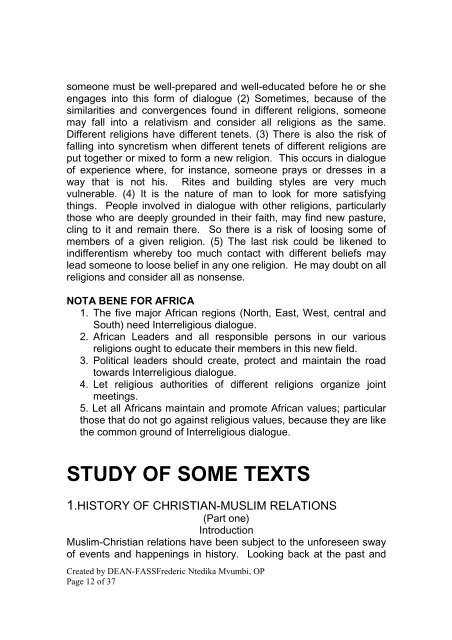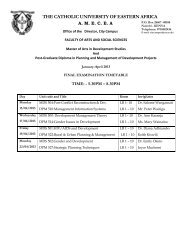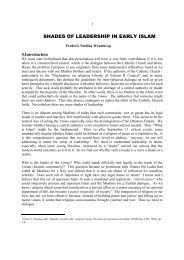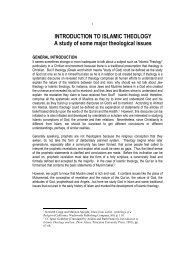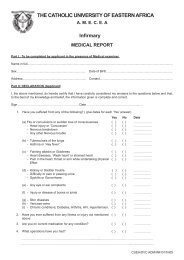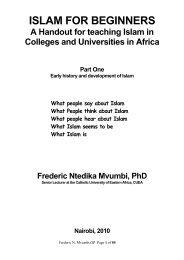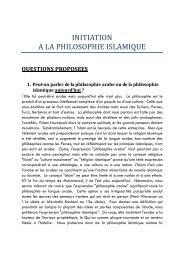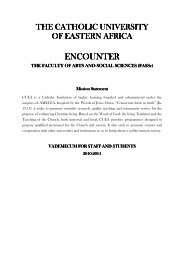PRINCIPLES FOR INTERRELIGIOUS DIALOGUE.pdf - CUEA
PRINCIPLES FOR INTERRELIGIOUS DIALOGUE.pdf - CUEA
PRINCIPLES FOR INTERRELIGIOUS DIALOGUE.pdf - CUEA
You also want an ePaper? Increase the reach of your titles
YUMPU automatically turns print PDFs into web optimized ePapers that Google loves.
someone must be well-prepared and well-educated before he or she<br />
engages into this form of dialogue (2) Sometimes, because of the<br />
similarities and convergences found in different religions, someone<br />
may fall into a relativism and consider all religions as the same.<br />
Different religions have different tenets. (3) There is also the risk of<br />
falling into syncretism when different tenets of different religions are<br />
put together or mixed to form a new religion. This occurs in dialogue<br />
of experience where, for instance, someone prays or dresses in a<br />
way that is not his. Rites and building styles are very much<br />
vulnerable. (4) It is the nature of man to look for more satisfying<br />
things. People involved in dialogue with other religions, particularly<br />
those who are deeply grounded in their faith, may find new pasture,<br />
cling to it and remain there. So there is a risk of loosing some of<br />
members of a given religion. (5) The last risk could be likened to<br />
indifferentism whereby too much contact with different beliefs may<br />
lead someone to loose belief in any one religion. He may doubt on all<br />
religions and consider all as nonsense.<br />
NOTA BENE <strong>FOR</strong> AFRICA<br />
1. The five major African regions (North, East, West, central and<br />
South) need Interreligious dialogue.<br />
2. African Leaders and all responsible persons in our various<br />
religions ought to educate their members in this new field.<br />
3. Political leaders should create, protect and maintain the road<br />
towards Interreligious dialogue.<br />
4. Let religious authorities of different religions organize joint<br />
meetings.<br />
5. Let all Africans maintain and promote African values; particular<br />
those that do not go against religious values, because they are like<br />
the common ground of Interreligious dialogue.<br />
STUDY OF SOME TEXTS<br />
1.HISTORY OF CHRISTIAN-MUSLIM RELATIONS<br />
(Part one)<br />
Introduction<br />
Muslim-Christian relations have been subject to the unforeseen sway<br />
of events and happenings in history. Looking back at the past and<br />
Created by DEAN-FASSFrederic Ntedika Mvumbi, OP<br />
Page 12 of 37


